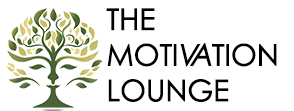Life Coaching (v) Counselling
Coaching and counseling are two types of support that help individuals make positive life changes.
Coaching is a goal-oriented approach that empowers clients to achieve their desired future.
A coach collaborates with the customer to determine their strengths and helps them create a plan to achieve their goals. The coach provides guidance, support, and accountability to help the client overcome obstacles and stay on track.
Conversely, counseling is a problem-focused approach that aims to improve mental health and well-being. A counselor works with the client to address emotional and psychological challenges.
They may explore the client’s past experiences to identify patterns of behavior or thoughts contributing to their current difficulties. The counselor provides therapeutic support to help clients overcome challenges and improve their mental health. Both coaching and counseling can benefit individuals, depending on their needs and goals.
Coaching can be helpful for those looking to achieve specific goals, improve their personal or professional life, or develop new skills. Counseling can benefit those struggling with mental health concerns such as depression, anxiety, addiction, trauma, and relationship problems. It’s important to note that coaching and counseling are distinct approaches, and it’s essential to choose the right direction based on your needs and goals.
A qualified coach or counselor can help you determine the best method for you and provide the support you need to achieve your desired outcomes.
“Life coaching is about looking forward and creating positive change, while counseling is about healing and understanding the past. Both are valuable tools for personal growth and development.”
– Unknown
“Life coaching is about looking forward and creating positive change, while counseling is about healing and understanding the past. Both are valuable tools for personal growth and development.”
– Unknown
| Comparison | Life Coaching | Counseling |
|---|---|---|
| Goal | Goal-oriented | Problem-focused |
| Focus | Present and future | Past and present |
| Approach | Collaborative | Therapeutic |
| Client | Functional | Dysfunctional |
| Relationship | Equal partnership | Professional and client |
| Method | Coaching techniques | Therapy techniques |
| Results | Improved performance | Reduced symptoms |
| Confidentiality | Yes | Yes |
| Training | Certification | Licensure |
| Education | Broad life skills | Specialized knowledge |
| Examples of Issues Addressed | Career advancement, personal growth, relationship improvement, time management, work-life balance | Mental health concerns such as anxiety, depression, trauma, addiction, and grief |
| Role of the Coach/Counselor | Provides guidance, support, and accountability | Provides diagnosis, treatment, and symptom relief |
| Length of Sessions | Varies, typically several months | Varies, can be long-term or short-term |
| Cost | Varies, typically less expensive | Varies, typically more expensive |
| Feedback | Action-oriented | Insight-oriented |
